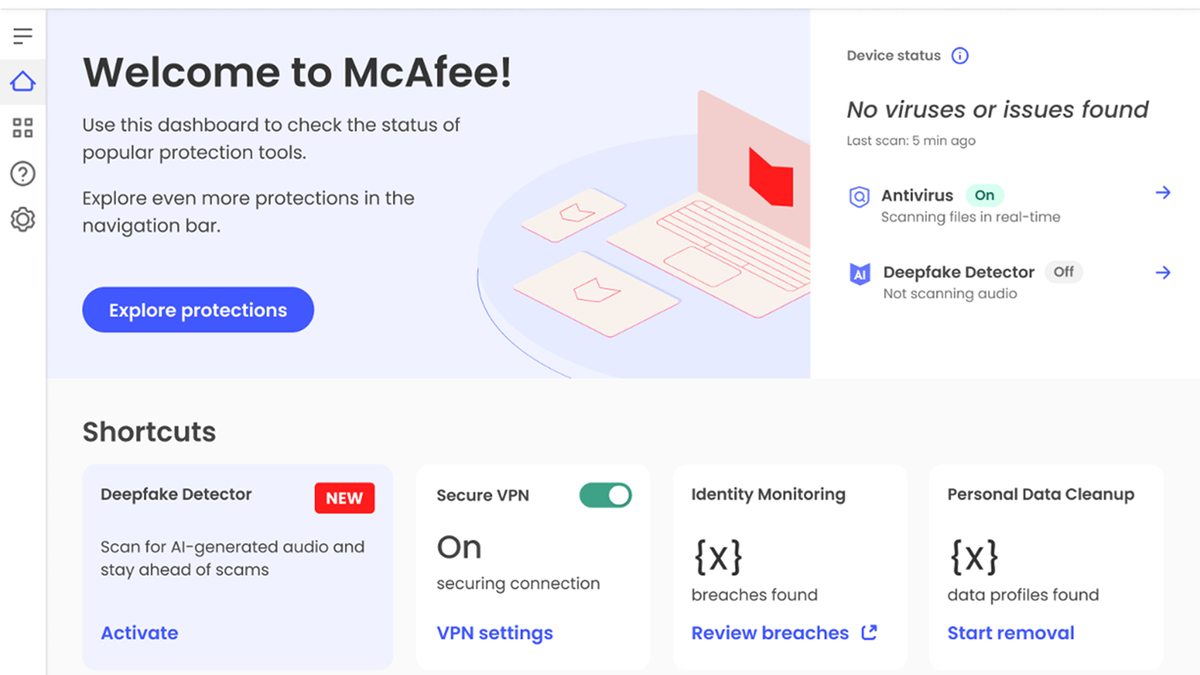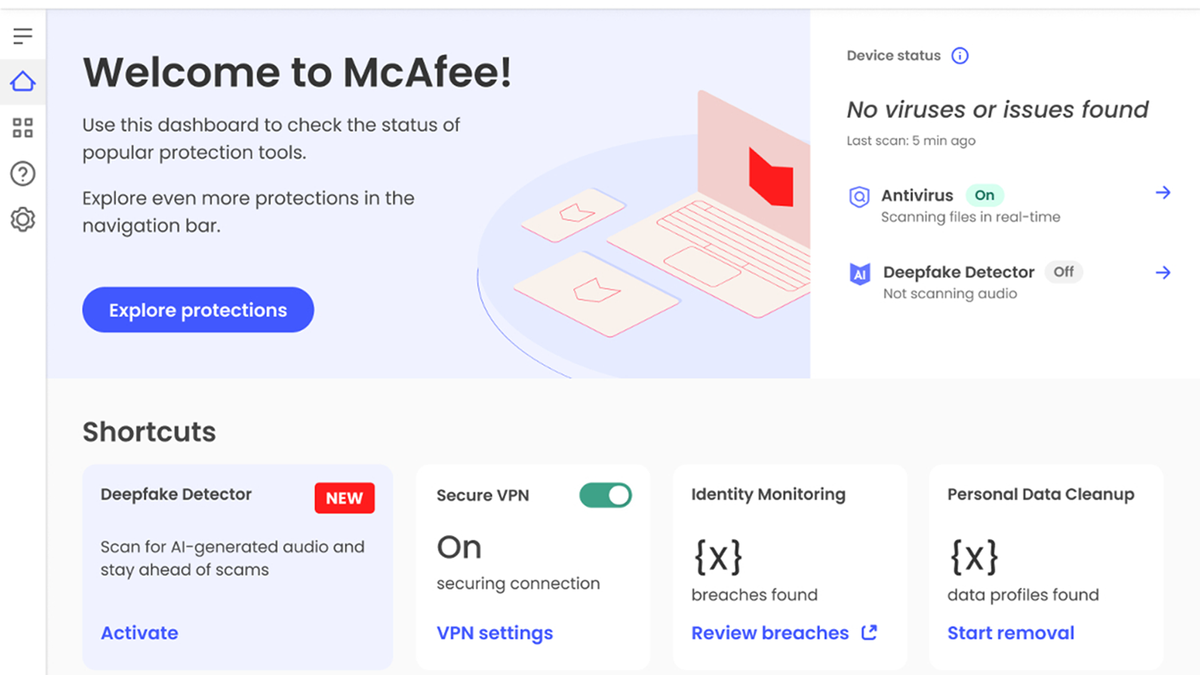
Deepfake videos are an impressive demonstration of how AI can mimic real people, but the technology is too often leveraged to trick people into thinking they are seeing and hearing a real person, especially celebrities. It’s a cybersecurity issue, which is why McAfee has partnered with Lenovo to bring its Deepfake Detector exclusively to Lenovo AI PCs. As the name suggests, McAfee’s Deepfake Detector spots and flags deepfake videos, the kind that have scammed people out of their money, more than half a million dollars in some extreme cases.
McAfee has been developing ways of limiting deepfake-fueled scams for a few years, but the Deepfake Detector takes that effort to a new level. The tool was trained on around 200,000 video samples to teach it how to accurately identify audio generated or altered with AI. It runs in the background like most anti-virus software, scanning video content playing both online and locally. Should it note a deepfake, it alerts the user and lets them decide what to do about it.
“Knowledge is power, and this has never been truer than in the AI-driven world we’re living in today,” McAfee Senior Vice President of Product Roma Majumder said. “No more wondering, is this Warren Buffet investment scheme legitimate, does Taylor Swift really want to give away cookware to fans, or did a politician actually say these words? The answers are provided to you automatically and within seconds with McAfee Deepfake Detector.”
Deepfake Detection Drama
The Deepfake Detector is specifically designed to operate on select Lenovo AI PCs because they are built with a neural processing unit (NPU) that enhances on-device AI capabilities. The computer can monitor and tag a video as a deepfake without needing to upload data to the cloud. The whole analysis stays on the device, which is a boon for the more privacy-minded PC user. The Deepfake Detector is now available in select Lenovo AI PCs in the U.S., UK, and Australia. A new purchase of a Lenovo AI PC comes with a free 30-day trial, with subscriptions starting at $10 a year afterward.
Those interested in buying a Lenovo AI PC with the Deepfake Detector may have to check who built the NPU, however. Earlier this year, McAfee announced that the Deepfake Detector would be exclusive to certain Intel chips with an NPU, but it’s not clear if the Lenovo exclusivity deal removes that limit. Lenovo’s AI PC portfolio includes computers with NPUs built by chipmakers besides Intel, such as the Qualcomm Snapdragon X Elite. We’ve reached out to McAfee and Lenovo to find out and will update you when we learn more.
“At McAfee, we’re inspired by the transformative potential of AI and are committed to helping shape a future where AI is used for good. Teaming up with Lenovo boosts our ability to deliver the most effective, automated, AI-powered deepfake detection, offering people a powerful digital guardian on their PCs,” Majumder said.
Even if you don’t have the right kind of Lenovo, you can still check if a video is a deepfake with the new McAfee Smart AI Hub at McAfee.ai. The website is designed to educate consumers about AI-driven scams, including deepfakes. But it’s not just reading material. Visitors can submit videos for analysis to find out if it’s a deepfake scam, and McAfee will use it to improve the educational content further and adapt its defensive software.
You might also like
Services Marketplace – Listings, Bookings & Reviews
